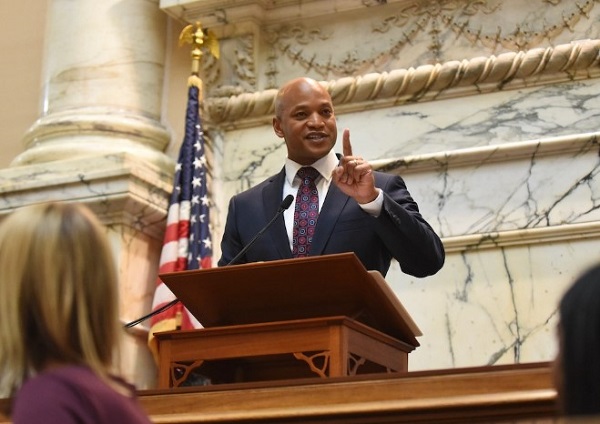ANNAPOLIS, MD—Maryland Governor Wes Moore has released the Moore-Miller administration’s $67.3 billion budget proposal for fiscal year 2026. The plan focuses on four key areas: growing the economy, strengthening Maryland’s workforce, modernizing government, and fixing the state’s tax system. The proposal accomplishes these goals without raising sales or property taxes, while increasing taxes and fees elsewhere.
“We are guided by a single, clear principle: build an economy that grows the middle class and gives everyone a pathway to work, wages, and wealth,” Moore said. “We did not create this fiscal crisis, but we are determined to fix it. Our common-sense proposal balances the state budget through strategic investments in growing the middle class.”
The budget proposal reduces the structural deficit by $2.25 billion in 2026, keeps the Rainy Day Fund at 8%, and turns a projected $2.95 billion cash shortfall into a positive cash ending balance. The proposal directs state resources toward investing in commercial hubs and future industries while maintaining funding for law enforcement, public safety, education, housing, health care and child care affordability.
Key highlights of the budget proposal include:
Growing the Economy
- $128 million in targeted investments in Maryland’s economic growth that will drive $515 million in economic activity to support, create or retain 2,600 jobs.
- $27.5 million for the Capital of Quantum Initiative.
- $25 million in Sunny Day Funds to attract businesses in target industries to Maryland.
- $15 million for Tradepoint Atlantic to support a 168-acre redevelopment slated to break ground in fall 2025 and projected to generate $1 billion in private investment.
- $10 million for the Build Our Future Innovation Economy Infrastructure Program.
Strengthening Maryland’s Labor Force
- $9.7 billion for Maryland’s public schools.
- A record $401 million in state funding for Maryland’s community colleges.
- Over 43,000 children will receive Child Care Scholarships worth $400 million this year, an increase from 16,000 in 2022.
- A $5 million increase for the Employment Advancement Right Now (EARN) program funding to find solutions to workforce skill gaps and personnel shortages.
- The Maryland Department of Transportation and the Maryland Department of Labor will jointly receive $4 million to collaborate on workforce development.
Modernizing Government
- Cutting $2 billion in spending through cost reduction and cost-saving measures.
- Redirecting spending for underutilized or underperforming programs toward high-priority programs.
Reforming the Tax Code for Fairness and Simplicity
- Providing tax cuts to nearly two-thirds of Marylanders, prioritizing low- and middle-income families.
- Expanding the child tax credit.
- Lowering the corporate tax rate so that more businesses locate and expand in Maryland.
- Doubling the standard deduction and consolidating the bottom four income tax brackets to simplify Maryland’s income tax.
- Eliminating the inheritance tax.
- A 15% increase in the sports wagering tax rate.
- Increasing the table game tax rate from 20% to 25%.
- Increasing the cannabis tax rate from 9% to 15% (effective fiscal year 2027).
More information about the Moore-Miller administration’s FY 2026 proposed budget is available at https://dbm.maryland.gov.
Gov. Moore’s administration will also introduce a series of vehicle-related fees, including a new $0.75 fee on online retail deliveries, to reverse hundreds of millions of dollars worth of cuts it proposed last fall to the state’s six-year transportation plan, according to The Baltimore Sun.
The fee would apply to purchases made through Amazon or other businesses with at least $500,000 in annual retail sales. The $0.75 fee would be applied by the business directly for every individual transaction, regardless of the cost.
Another proposal would see an increase in the vehicle emissions testing fee from $14 to $30.
The proposals will be considered in the coming months alongside the separate $67.3 billion state budget proposal for the fiscal year beginning July 1.
This article was written with the assistance of AI and reviewed by a human editor.
Photo via Governor Wes Moore


